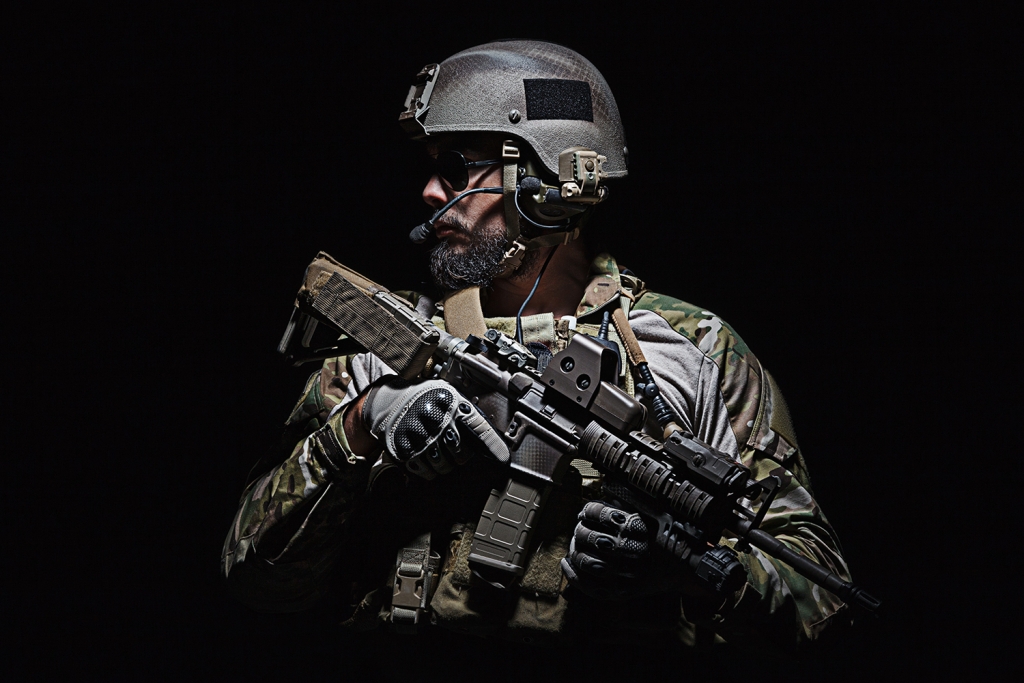
In 2009, right after I finished One Rough Man, legendary investigative reporter Seymour Hersh claimed that George W. Bush had run an “executive assassination ring” reporting directly to Dick Cheney, which might be continuing to this day under a new administration. I couldn’t believe it. The story sounded remarkably like the fictional unit I’d created for my novel. Given my background, I suppose what I should do is wink and nod, neither confirming nor denying his allegations. After all, that would be the best for book sales. “No, the book is fiction,” wink, “and I can’t really talk about what I did…” What I’m going to do instead is show just how false his reporting is, because it does a disservice to everyone who wears the uniform, and it breeds distrust in both our population and our government. Hersh dropped his bombshell at an engagement with Walter Mondale at the University of Minnesota. Speaking with “great confidence”, he said, in part,
“Under President Bush’s authority, they’ve been going into countries, not talking to the ambassador or the CIA station chief, and finding people on a list and executing them and leaving. That’s been going on, in the name of all of us. It’s complicated because the guys doing it are not murderers, and yet they are committing what we would normally call murder. It’s a very complicated issue. Because they are young men that went into the Special Forces. The Delta Forces you’ve heard about. Navy Seal teams. Highly specialized.”
I’ve already shown in my last blog, Lethal Truth, that self defense isn’t assassination – or murder – but what about this? Are special operations forces running around the world conducting covert operations without any oversight?
In a word, no. Not only does it not happen, it would be just about impossible for it to happen, even if the president wanted such an organization. The story doesn’t surprise me, though, since it isn’t the first time I’ve run afoul of Hersh’s “reporting”.
On October 19, 2001, a special operations force conducted the first ground combat action inside Afghanistan. Shortly thereafter, Hersh wrote an article entitled “Escape and Evasion” published in the New Yorker, claiming that the entire mission was a fiasco and the forces involved were boiling mad about the Pentagon’s “mismanagement”. Having a passing familiarity with that operation, I can state unequivocally that the only two accurate items in the story were the fact that Americans were involved and the country was Afghanistan. The rest is absolute fantasy. What wasn’t fantasy was the number of people in DC who chose to believe Hersh instead of the military chain of command.
Since then, Hersh has made a cottage industry of slamming special operations forces, making all sorts of outrageous claims that generate a plethora of blogs, like this one. These bloggers are convinced that U.S. Special Forces are running all over the globe breaking the law, when the bloggers don’t even know which U.S. law they’re discussing. Instead of getting into a he-said/she-said debate, since I could be viewed as simply putting out propaganda, I think it would be instructive to discuss the authorities inherent in United States law that allow our forces to conduct operations. Not conjecture or hyperbole–fact.
Mention the term “covert”, and one usually thinks about something secret, which is generally how the press uses the term. They think that the Department of Defense is conducting a “covert operation” if it secretly sends a team to a foreign country to train their military. Or the CIA is conducting “covert action” when case officers secretly recruit spies in a foreign country. Legally, neither one of these are covert, regardless of how secret they are. Unlike “assassination”, the term “covert action” is spelled out in our laws, with a distinct meaning – and distinct legal ramifications.
The same committees that looked into assassination in the 1970s also looked into other intelligence community activities like the Bay of Pigs. Unlike assassination, they did manage to pass legislation on the matter, which has morphed through the years. In 1991, as a result of the Iran-Contra scandal, covert action was finally codified in Title 50 of United States Code, the section that regulates Intelligence Activities:
“an activity or activities of the United States Government to influence political, economic, or military conditions abroad, where it is intended that the role of the United States Government will not be apparent or acknowledged publicly.”
If you look closely, you’ll see the definition has two parts: 1. US participation will not be acknowledged, and 2. The operation affects large, state systems. The “economic, political or military conditions abroad.”
That’s the legal framework, and no matter what the NY Times or Seymour Hersh reports, simply saying the military is conducting covert action doesn’t make it so. While many in the media attempt to re-define what the statute means, using dictionary definitions or their own beliefs, the intent of the law, like all laws, is delineated by the very actions which spawned its creation: attempts to alter democratic elections in Chile, arming Contra opposition groups in Nicaragua, lethal aid to insurgents against the communist government of Angola, and supporting the Mujahedeen in Afghanistan. All were efforts at affecting a government hostile to United States interests.
Thus, if the military – or the CIA for that matter – were to capture a terrorist overseas, and that terrorist were simply living there, without any connection to the state, his removal would not be a covert action, regardless of whether the US acknowledged his capture or not. In no way would his removal affect the military, economic, or political conditions abroad. This isn’t to say the action would be perfectly legal. Just that it’s not an illegal breach of Title 50, which is where the press spends their time. On the other hand, if this terrorist were also acting as the finance minister of the country, it would fall under the legal definition. His removal would alter the political and economic conditions in that country – regardless of the intent. The unintended repercussions fall within the greater definition of the law.
Title 50 goes further, not only describing what covert action is, but also what it is not. Specifically excluded in the statute are:
- “Activities the primary purpose of which is to acquire intelligence…”
- “Traditional… military activities or routine support to such activities.”
Read that closely: traditional military activities, by law, are not covert action. But what does that mean? Unfortunately, like assassination, the term wasn’t defined. What is a traditional military activity? Is it the method, or the intent? For instance, in preparation for an upcoming operation, is a soldier in civilian clothes, who’s renting warehouses and trucks in a foreign city – without stating he works for the U.S. government – doing a traditional military activity? Some would say no, he’s acting like a spy and thus subject to Title 50. I’d say the opposite. His methods have changed, but his intent has not. He’s doing the same thing his uniformed counterpart is doing in Kuwait when he sets up tents and mess halls – infrastructure support. To use the method to describe what is or is not an intelligence activity is to ask for an infinite list of what those methods are, and that, in and of itself creates friction.
Say a U.S. embassy has been taken over by terrorists, and the only way for the military rescue force to glean intelligence is by posing as a telephone repair crew. Have they now crossed the line into “covert action”, and started breaking the law embodied in Title 50? Of course not. But wait? Why not? They’re using the same methods as the other example. It’s not a trivial discussion, because if it is a covert activity, there are specific regulatory requirements.
If the executive branch determines a covert action is necessary, Title 50 dictates that the President must present, in writing, what’s known as a finding to the house and senate intelligence committees, before the activity. This finding must spell out the foreign policy objective to be obtained, and the method of accomplishment. It also stipulates that the finding cannot violate the constitution or any statute of the United States. It’s important to note that congress has no approval authority over the finding. They can’t say no. The law simply states they must be informed. Even so, the requirement is potent, as no covert action has continued in the absence of congressional support. Every covert action has inherent risks, and no president wants to be standing alone if it ends up a debacle.
This finding requirement is what has led many to report that President Bush, and now President Obama, have decided to use the military for covert action because they aren’t part of the intelligence community, and thus not regulated by Title 50. It’s a way to circumvent US law. They are wrong. The military can conduct covert action, but if they do, they fall under the same proscriptions as the CIA. The law is based on the activity, not the organization. A finding must be presented, and congress must be continually updated as to the status of the activity. The key, though, is the definition embodied in the law itself. Are activities against terrorism as currently conducted “covert action” as defined by Title 50? Both Bush and Obama clearly think not. They’re simply military activities not affecting the political, military, or economic conditions abroad, and thus not subject to congressional oversight. One can argue they should be, but it’s impossible to argue that current law is being circumvented or broken. In fact, the definition embodied in Title 50 has been looked at by lawmakers since 9/11, and been upheld. In the 2004 intelligence authorization law, conferees reaffirmed the “functional definition of covert action”.
If they’re not breaking the law embodied by Title 50, are they breaking other laws or directives? Hersh alleges there’s at least one element that, “is a special wing of our special operations community that is set up independently. They do not report to anybody, except in the Bush-Cheney days, they reported directly to the Cheney office. They did not report to the chairman of the joint chiefs of staff or to Mr. [Robert] Gates, the secretary of defense. They reported directly to him…”
Wow. Sounds like a kickass Mission Impossible force, but does it really exist?
Hell no. The very notion is ridiculous. Like the intelligence community, the military falls under United States Code, this time Title 10, which dictates what the military can and can’t do. Inherent in Title 10 is the concept of a chain of command. JSOC, and every element within it, falls within that chain of command. The notion that any military element would not answer to the joint chiefs or the secretary of defense is flat out ludicrous.
In order for any military element to deploy anywhere outside of the United States, a thing called a deployment order – or DEPORD – is written. It doesn’t matter if it’s a single doctor flying to a natural disaster, or a team of commandos on a super-secret mission, you’re not leaving US soil without a DEPORD. And that document is signed by the Secretary of Defense. Every Air Force aircraft, every Navy boat, and every infantry battalion that leaves the continental United States does so under a DEPORD signed by the SECDEF. Every single one. And that includes every Special Forces team, troop, battalion or squadron. That’s just the way it is. I don’t care how top secret you think you are – and I’ve seen the tippy-top – you’ll go nowhere until the DEPORD is approved.
This notion of direct reporting, outside the chain of command, shows a complete lack of understanding about what would be required to accomplish the very mission Hersh alleges. Before getting to that, though, the first question would be “why?” Why would such an organization be created? So nobody could “see” what they were doing? Okay, just for a second, let’s assume that the commander in chief decided that his vice president alone knew better than anyone else about what military action was necessary around the globe, and also knew that the entire defense establishment disagreed with this assessment (this would have to be the case or there wouldn’t be any reason to hide the mission from the chain of command).
Given that stretch of the imagination, how is this little assassination cell capable of conducting the mission in the absence of the support from the intelligence community and greater DoD? How are they going to find targets? Who’s giving them intelligence? A super-secret intelligence battalion that also reports to the VP? Who’s creating the infrastructure necessary in the targeted country? A super-secret logistics unit? How are they getting there? Air Force One? How are they getting weapons, communications equipment, and everything else needed into the country? How are they extracting the terrorist after capture? Oh, wait, that’s right, we simply kill them, because we get promoted based on body counts. I forgot we were talking about fantasy. Well, anyway, all of the other actions require robust support, and all of that support, unless also “reporting directly to the vice president” would require a DEPORD to deploy – signed by the SECDEF. And he’s not given to signing blank checks. He’d want to know why the unit had to deploy. The truth is that we have a system in place, and the system works. Trust me, it’s frustrating as hell when operating within it, but it’s built for a reason. While we might have grumbled about it, we understood it. And supported it.
This would all just be semantics if everyone within the US Government understood how such operations are executed under United States law, but they don’t, and, unfortunately, that gap in knowledge is filled by articles such as Hersh’s. My old world was secret out of necessity, but it wasn’t evil or subversive. Articles such as Hersh’s feed the flame of conspiracy, and directly affect United States national security. In the first example, about the mission in Afghanistan, members of congress actually demanded to know “what really happened.” This, after getting the classified after-action review. No matter how much they were briefed, there was a sneaking suspicion that something was being hidden. Such doubts are harmful in a system where military power is controlled by civilian authorities. The civilians need to trust in the advice and reporting of their military members. Hersh’s gross distortions short circuit that faith, with concrete repercussions.
When Hersh alleges that military forces are executing operations inside foreign countries without coordinating with the CIA or the Ambassador of that country, it’s more than simply words on a page. It literally affects ongoing operations, because the ambassador believes it.
The ambassador is the president’s personal representative in a given country. He is appointed by, and serves at the pleasure of, the president. (This once again begs the question: If the president wanted to conduct an operation in a foreign country, why would he need to keep it secret from the ambassador? Why not just call him on the phone and tell him to facilitate, or get his ass home?) The ambassador outranks any military person who comes to his domain. When he talks, he’s speaking for the President of the United States. He is the ultimate arbitrator of United States policy in the country.
Because of this, far from trying to do any secret missions outside the purview of the president’s personal representative, the military goes out of its way to ensure the ambassador, and by extension, the chief of station, are informed of all actions. Unfortunately, because the ambassador is no more witting of my world than people like Hersh, he chooses to believe that the press is telling the truth – and by extension, I’m telling a lie.
There have been several instances where special operations forces on benign training missions have been denied country clearance by an ambassador with no reason given. At other times, the force was allowed in, briefed the ambassador, and then received a cold stare and the question, “What are you really going to do here?” You wonder why so many counter-terrorist actions occur in Somalia? It’s simple: There’s no ambassador there to tell the Department of Defense no.
I’m all about exposing illegal, evil secret assassination squads, but allegations alone, without a trace of proof, do nothing but seed distrust throughout our government and our population. And that distrust directly harms the United States, actively thwarting the very coordination process the military works hard to achieve.
I guess Seymour Hersh could say I’m just spouting the party line, and there’s really no way I can prove him wrong – because I can’t prove a negative. On the other hand, other than allegations, there’s no proof from him that any of this occurred. You’d think there’d be something. Last year a leader of Hamas was killed in Dubai, most likely by Mossad. One targeted killing made world-wide news for weeks. If Hersh’s allegations are true, where are all of the dead guys killed by the Bush “assassination” team? Why hasn’t there been a single story on a killing – anywhere? Especially if it’s still ongoing?
It must be because the world-wide press reports to the White House as well.




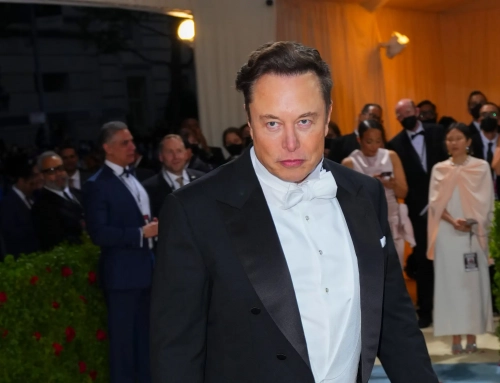
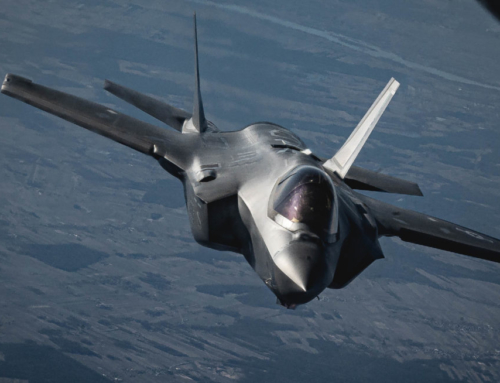
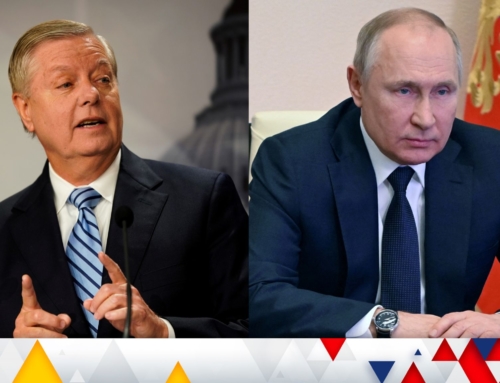
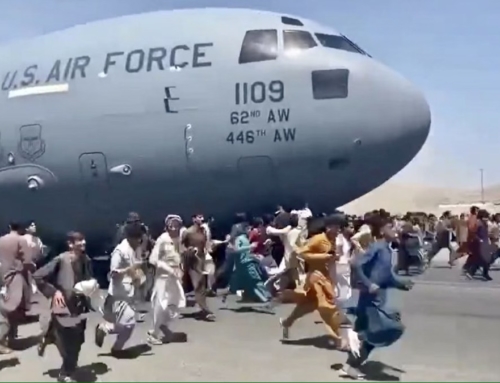
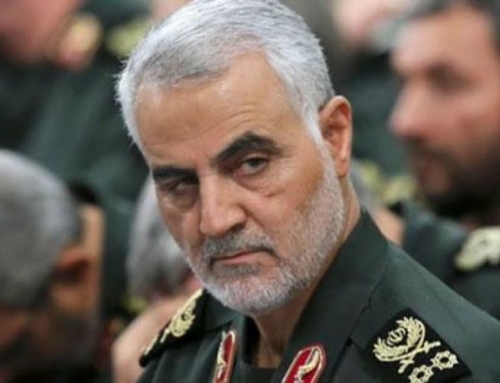
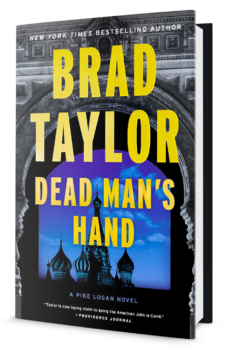
Thanks for this Brad, and taking the time to explain in such detail.
I don’t enjoy explaining so often why Title 10 is important to why or how we do things on the JS, but I do, despite the annoyed looks – mostly by people with an agenda or carrying their “boss’s water”.
B-rad, nice very nice. 😀
Thanks for this detailed explanation, Brad! I’ve been wondering ever since Hersch made those comments, mostly because I could believe it of Cheney. I’m relieved that your facts make sense, and the world seems a little better now. Looking forward to getting a copy of your book soon.
Thank you for your in depth insight. I know first hand that you have more credibility and insight than a reporter angling for his own book deal. I am an amature constitutional historian, and on your word Hersh is a fraud. For those reading this, I take Brad’s word as Gospel, not because he is my brother, but because I have never met a person with so much knowledge to the truth in this strange arena brought on by horrific terrorist acts of others. BRAD: keep fighting the Good Fight. Our men and women in uniform need somebody to set the record straight.
Seymour Hersch has a long history of presenting fantasy as scandalous truth. Back in the ’80s he claimed the Korean airliner 007 that the Soviets shot down was actually on a CIA intelligence-gathering mission. In 1969, President Nixon revealed that the US routinely got that kind of intelligence without resorting to a flyover. Years later, the Soviet pilot who shot the airliner down stated publicly that he knew it was an unarmed airliner. Hersch has always been as anti-American as anyone else on the far left, with false reporting his weapon of choice.
Thank you for this piece of writing.
Though I would like to fantasize about the Seymour Hersches of the world reading this and saying “dang it. I’m stupid!” The reality is that they are so caught up in their own reality that no amount of common sense can change their minds.
Deep down, people desperately want to believe in conspiracy theories and assassination squads; it’s the reason why shows like “24” and so many other movies like that do so well. People want to believe that there is some super-duper secret-squirrel organization that answers to almost nobody and has near-Jedi-like powers. Hell, even I have to admit I was disappointed when, at the end of RIP, they told me I didn’t get a light saber…
Keep up the good work, Mr. Taylor. I wish you much success and look forward to your next work.
Thank you for an excellent read Mr. Taylor,,,,,,,,
Mr. Taylor,,,,,,,and all,,,,,Has America lost the will to use its military in situations that border on civil war???
Looking at the confused situation in Libya, we see Europe, in particular the British and French leading the way with no fly proposals and SAS units active in Libya,,,and yet America seems to be anti nofly,,,reference Scty Gates comments of last week…..And while we fiddle and appear indecisive, civilians are being slaughtered….I guess the masses prefer mind numbing reality shows to the real world..